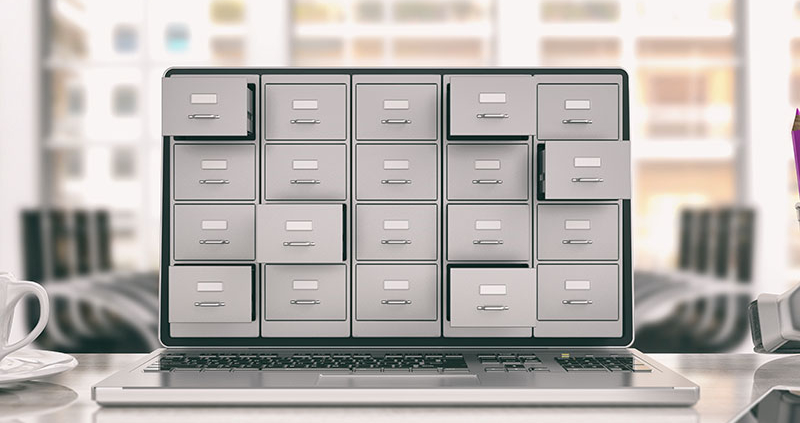Tips for Keeping Records in the Cloud
Which records should your small business keep in the cloud — and for how long?
More and more small businesses are going paperless. There are many good reasons to do so, including reduced clutter, increased security and better protection for your files against fire or water damage. You also don’t have to worry about a piece of paper going missing or someone misfiling a document and leaving you unable to find it.
A natural result of going paperless is storing financial records and other important documents in the cloud. But exactly which docs should you move to the cloud, and how long should you leave them there? Here’s a basic guide.
Tax Documents
Since the primary purpose of keeping tax documents on file is to be prepared for a possible IRS audit, it makes sense to follow IRS guidelines for online storage. Federal law requires that you keep copies of your returns for three years, which is the period a typical audit covers. Under certain circumstances, however, an audit can go back six years. And if your business happens to make a bad-debt deduction, to cite one example, you need to keep those records for seven years.
Since you should be able to store an unlimited number of documents in the cloud at no additional cost, seven years is a good rule of thumb for keeping your tax returns and related files. You might even want to keep them indefinitely. Because, as the IRS notes, “Your insurance company or creditors may require you to keep them longer than the IRS does.”
What Other Docs Should Go in the Cloud?
Just about all of them, according to the U.S. Chamber of Commerce. The CoC recommends keeping indefinitely electronic copies of any foundational document related to your business, such as deeds, trademark registrations and statements of ownership. You should also hold onto permits, licenses, insurance policies, credit card statements and banking records, including canceled checks.
Also, be sure to adhere to federal record retention guidelines regarding personnel documents. These run the gamut from one year for any job postings, advertisements or applications, to 30 years for any Occupational Safety and Health Administration-related medical exams.
Pay Particular Attention to Payroll Records
While it goes without saying that you should store copies of your payroll records in the cloud — the Fair Labor Standards Act mandates that you keep payroll documents for at least three years — this can prove trickier than other forms of record-keeping. If you’re like most businesses, you use an outsourced payroll service. And while it’s your right to change providers, you’ll want to provide adequate notice of the change to prevent any disruption in service, record-keeping or payroll cadence.
In general, providing enough notice to make the change at the beginning of the fiscal year, or at least the start of a new quarter, should make the transition smoother and ensure you get a complete set of records from your outgoing provider.
What About Those Hard-Copy Originals?
With direct deposit and other forms of electronic funds transfer becoming increasingly common — and even required in some cases — it’s tempting to think that paper records are now obsolete. But in some instances, you should hang onto original hard copies.
For example, keep any source document that has a raised seal or original signature. And if your business assets are part of your estate, the probate court will require a hard copy of your will in order to pass those assets on to your heirs.
Rather than keep your will on the premises, or even in a safe deposit box, you should entrust it to your attorney — or better yet, file it with the probate court, if your state allows this.
Keep This in Mind
A rule of thumb for your record retention policy should be: When in doubt, don’t throw it out. Take advantage of the virtually unlimited storage capacity and increased security that the cloud affords to keep your records safe for as long as necessary. And be sure to coordinate your financial record-keeping with your outsourced bookkeeper or CPA for maximum efficiency.




Leave a Reply
Want to join the discussion?Feel free to contribute!